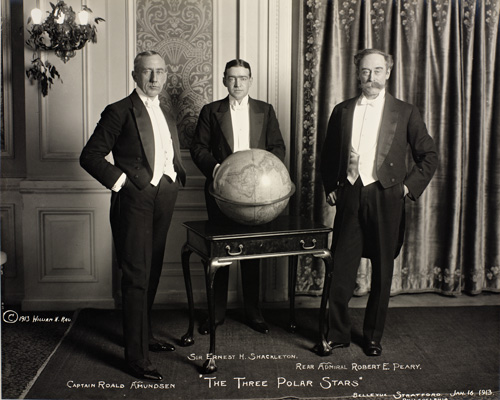
How will you coach yourself through difficulties? What strategies will help you through tough times? Where can you turn for inspiration?
Antarctic explorer Ernest Shackleton faced epic challenges in the course of his career. In 1914, Shackleton sailed with a crew of twenty-seven aboard Endurance to make “the last great polar journey”—the crossing of the Antarctic continent. They never got there. In sight of their intended base, a summer storm blew up. When the clouds cleared, Endurance was trapped in pack-ice—”like an almond in a chocolate bar.”
Cut off from the outside world, with no hope of rescue, they lived through a polar winter. In the spring, things got worse. Massive ice-floes tortured, twisted, and finally crushed the ship. Hundreds of miles from land, Endurance sank.
For months the men camped on the ice-floe. When their floe crumbled into the open sea, they leaped into three small lifeboats. Short of food, tormented by thirst, they spent one horrific night surrounded by a pack of killer whales.
Every man got home alive. Despite hardships, throughout their ordeal, they actually had a pretty good time. Endurance captain Frank Worsley wrote in his diary, “Everyone is happy and contented and hopeful, if not confident, of the future…I do not worry… at present I am enjoying myself far more than I would in civilization.”
In the 1970s, expedition-member Lionel Greenstreet was asked how they managed to survive. He answered in one word: “Shackleton.”
Shackleton was a master at coaching himself and others through challenges. His resources were Bible verses, prayer and poetry. In his darkest hours, he turned to his favorite hymn: Lead Kindly Light.
He used his diary to feed himself positive affirmations about his team and their situation. After losing the ship, day after day, he wrote all were well and often noted all were “cheerful.”
He made a point of recording the contributions made by the most difficult members of his team. By reminding himself of their positive contributions, he avoided getting caught up in their shortcomings. They survived because Shackleton let everyone use their strengths to the best of their abilities.
That’s Shackleton’s Way.
Shackleton’s Lessons on Coaching Yourself.
How do you coach yourself? How do you monitor and control your ongoing, habitual thought patterns? What resources do you turn to for spiritual nourishment and practical effectiveness? How do you coach others? How do you encourage —or discourage—others through your planned and habitual approaches to challenges? Are you better today than yesterday? Who are you serving?
###
Margot Morrell is coauthor of the best-seller Shackleton’s Way: Leadership Lessons from the Great Antarctic Explorer, and author of the new Reagan’s Journey: Lessons from a Remarkable Career. She is based in Washington, D.C. and explores leadership and navigates the career world at shackeltonsway.com.
Margot Morrell | Shackleton Lessons on Coaching Yourself
